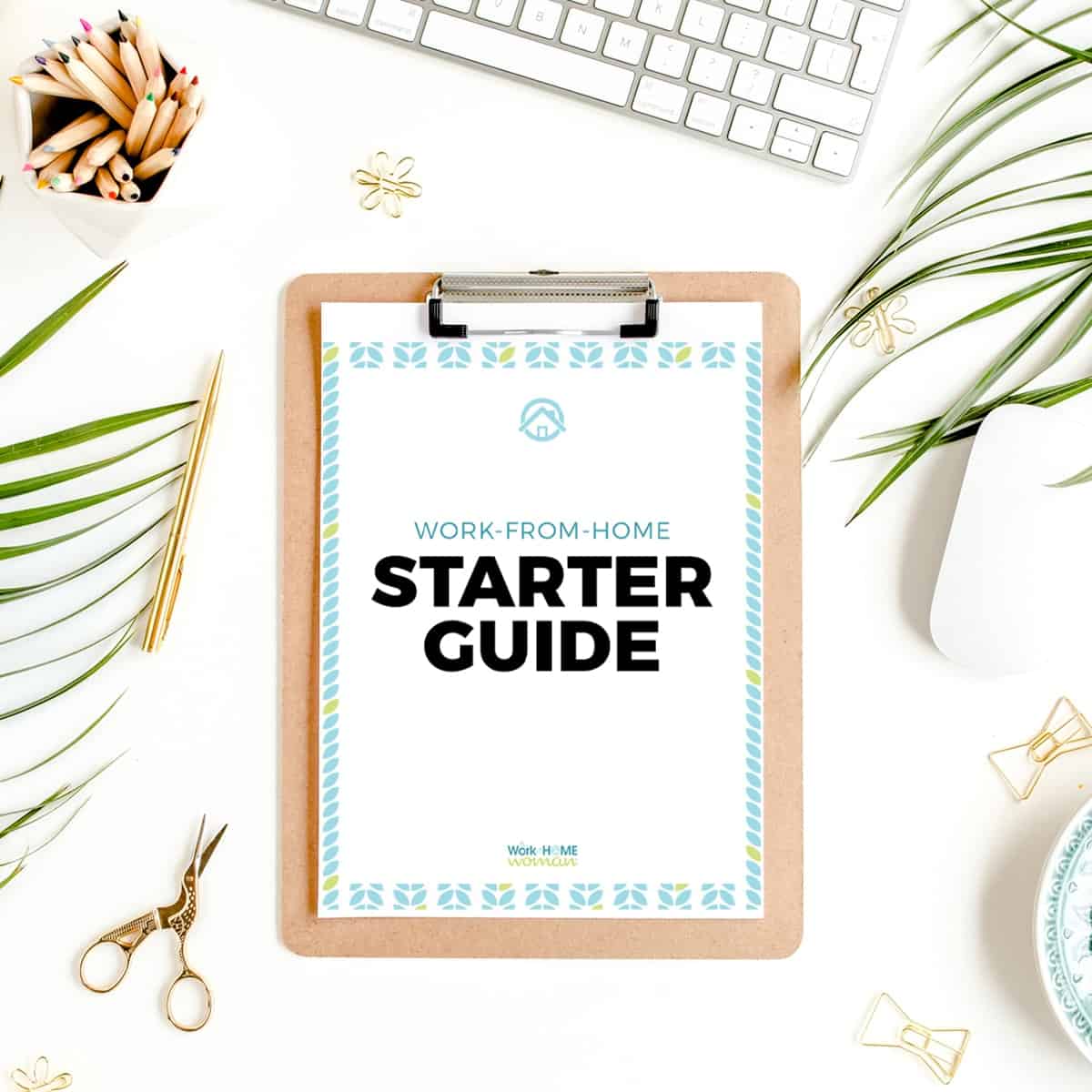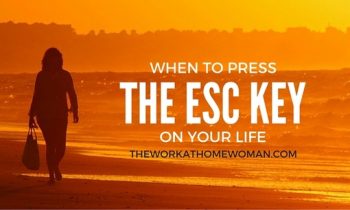 The thought of leaving the ‘safety’ of a regular 9-5 job for the big unknown of self-employment can be as exciting as it is scary. I know this first-hand because I’ve been there and I’ve also had the great privilege of working with women of all ages who’ve wanted to make their dreams of self-employment and working from home come true.
The thought of leaving the ‘safety’ of a regular 9-5 job for the big unknown of self-employment can be as exciting as it is scary. I know this first-hand because I’ve been there and I’ve also had the great privilege of working with women of all ages who’ve wanted to make their dreams of self-employment and working from home come true.
Through personal experience and working with clients, I’ve found two of the biggest things that stop many of us from taking the plunge is … self-doubt and lack of confidence or self-belief. This was certainly the case for Gabby, a client of mine who’d been working in customer service for an online retailer for years. Gabby described her job as ‘safe’ and comfortable, but deep down she knew the job wasn’t moving her on in any way.
Gabby had also trained in sports massage, and her ultimate dream and goal were to work for herself as a massage therapist. She already had some massage clients and enjoyed doing this work much more than her office job, but because she felt so stuck in her regular job, she was beginning to question 1) her ability as a massage therapist and 2) whether she had it in her to go it alone and launch her therapy business.
This is when Gabby came to me for some help. Together we worked through a 5 step process that helped her conquer her self-doubt and lack of confidence so that she could finally leave her ‘safe’ job and launch her business in just six months.
I’ll walk you through the steps Gabby took so you can begin to prepare yourself to get similar results:
Step 1: What’s Your Vitality Formula?
The first thing Gabby needed to do was to clarify exactly what she wanted to achieve and why. This is critical because when we feel stuck in a rut, it’s quite easy for us to say we’ll settle for anything that’ll get us out of it. But unless we’re really specific about what we want and why, we risk going for something that seems great at the beginning, but ends up being just as bad or maybe even worse than what we left behind.
Gabby started by asking herself three key questions:
- What’s important about what you do now?
- What would you rather be doing?
- What’s important about what you’d rather be doing?
When we’re considering the transition from employment to self-employment, these three questions can really help us get clear. For example, if working with a team and/or around people is important to you, you’ll want to consider how you can still have this when you go self-employed – hence why some of us prefer to do a lot of our work in cafés or join a hub of like-minded business people.
2. Get to Know Your “Personal Positioning System”.
After identifying what was important to her about her current and preferred state, it was time for Gabby to recalibrate what I call her ‘Personal Positioning System’. This is like your personal GPS, and it should always bring you back to your center. It’s about understanding what you value in different areas of your life (relationships, family, work, your living environment, wellbeing, and happiness) so you can start embracing these values and live a more authentic life.
For example, if you say loyalty is important to you in relationships, you may want to question whether you’re willing to put up with a close associate who you’ve discovered has been spreading rumors about you behind your back. Or if working to your own schedule is important to you, is it really a good idea to take on that assignment where they expect you to be regularly available during office hours?
3. Find Your Hidden Treasures.
Another vital step Gabby took was to reconnect with her passions and interests. Often when we feel stuck, it’s because we’ve been living on auto-pilot for so long that we’ve ignored or neglected the things we really love and enjoy doing. By using my Hidden Treasures Formula and exploring the interests and hobbies that excited her when she was younger. Gabby reconnected with two of her earlier passions in life – playing a musical instrument and drawing.
Because she’d been so caught up in the frustration of not being able to leave her ‘safe’ job, both these passions hardly figured in her life. Once she gradually started reintroducing them into her life, not only did she begin to feel happier and more content, but she was also more able to explore other opportunities. Doing things she truly enjoyed and loved opened her up to feeling less stuck and being honest with herself about what was really stopping her from leaving her job.

4. Question Your Beliefs.
The fourth step Gabby took was to work on and question her beliefs about herself, her life, how she made a living. For Gabby this was, and still is, both the toughest and most helpful part of the process because “it’s going to make you question lots of things.”
It’s always better to do this step with the support of a good coach or therapist, but you can start off by identifying and questioning some of the limiting beliefs you grew up with:
- Where did they come from?
- Were they even yours to begin with?
- If they weren’t (and quite often they aren’t), do they serve any purpose in your life now?
- Do you really want to keep those beliefs?
And if not, what would be better beliefs to have now? Remember, you can update your beliefs – they’re only set in stone in your head!
5. Take Action.
After working together on an action plan (the fifth step), in six months Gabby was able to “work through things, finally make the decision to leave and actually do it.” Gabby is now self-employed and according to her: “I definitely have a lot more job satisfaction and feel like I’m actually being myself.”
How about you? Are you looking to make the transition from being employed to self-employed? What are you struggling with at the moment? Let me know by leaving a comment below.
Jackie Mendoza is a change coach, author, and seminar leader working with women who want to relaunch their lives, careers, and/or businesses. You can follow Jackie on Twitter.







I’m afraid of making my current boss upset as I need to become a customer of the job I want to leave. I feel she doesn’t believe in my goals to become self employed in simular career. Like I’m not good enough. I feel like I have a missing element that I haven’t figured out yet to be successful in my own business.
Hi Lisa,
Sometimes it’s best not to talk about your business aspirations to your boss or coworkers, as they may feel like you’re not going to put your best foot forward at your current role. I would find a local business group to get the support you’re needing.
I am contemplating starting my own business, but I am scared and need some encouragement! Can you help?
Hi Janice,
What’s your main fear?
For me the toughtest part is believing that I got what it takes to succeed. Thanks for sharing post.
Glad you enjoyed the post and YOU GOT THIS!
Addressing confidence during the employment to self employment transition is no doubt a HUGE piece! Thank you for sharing!
You’re welcome, Lisa, glad you found the post of interest and thanks for leaving a comment!